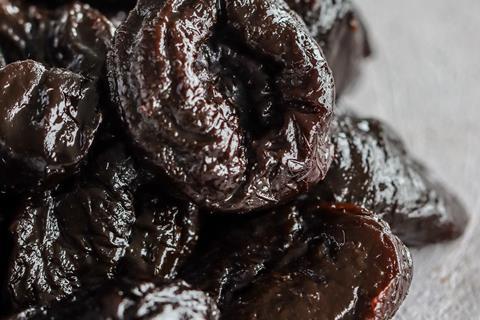Prunes may help reduce belly fat and the risk for cardiovascular disease while improving gut health, according to new research

The dried plum is a nutritional powerhouse that may cut fat and benefit gut microbiome health, bone health, heart health and more, according to new research.
Latest discoveries from The Prune Study, a 12-month randomised controlled trial conducted with 183 postmenopausal women aged 55 to 75, add to an already robust body of clinical research on prunes’ myriad health benefits, the California Prune Board says.
Published in the Journal of Nutrition, one trial showed that eating 100 grams of prunes daily may help prevent changes in fat distribution around the central region of the body. The increase of belly fat is common in postmenopausal women and when excessive can be a risk factor for cardiovascular disease.
A second study, published in Frontiers in Nutrition, delved deeper to uncover differences in the gut bacteria of the women who experienced a positive change in their bone density compared with those who saw no change after eating 50 to 100 grams of prunes daily over a 12-month period.
Those who had an increase in bone density after eating prunes had a higher abundance of a certain type of “good” gut bacteria that is associated with more efficiently breaking down nutrients and bioactive parts of prunes for the body’s use. This same group also experienced a drop in inflammation throughout the body.
Principal investigator Dr Mary Jane De Souza, professor at the department of Kinesiology, Pennsylvania State University, said: “As a nutrient-rich fruit, prunes have a combination of minerals, vitamin K, phenolic compounds and fibre that is unique among foods and is important for bone integrity.
“These study findings add to the growing body of precision nutrition research and highlight a greater potential for prunes to positively impact health outcomes through a personalised dietary recommendation approach.”
A previous 2021 study showed that postmenopausal women who ate 50 to 100 grams of prunes daily over a six-month period reduced their levels of total cholesterol, oxidative stress, and inflammatory markers – risk factors for cardiovascular disease – when compared to a group that did not include prunes in their diet, the California Prune Board said.



